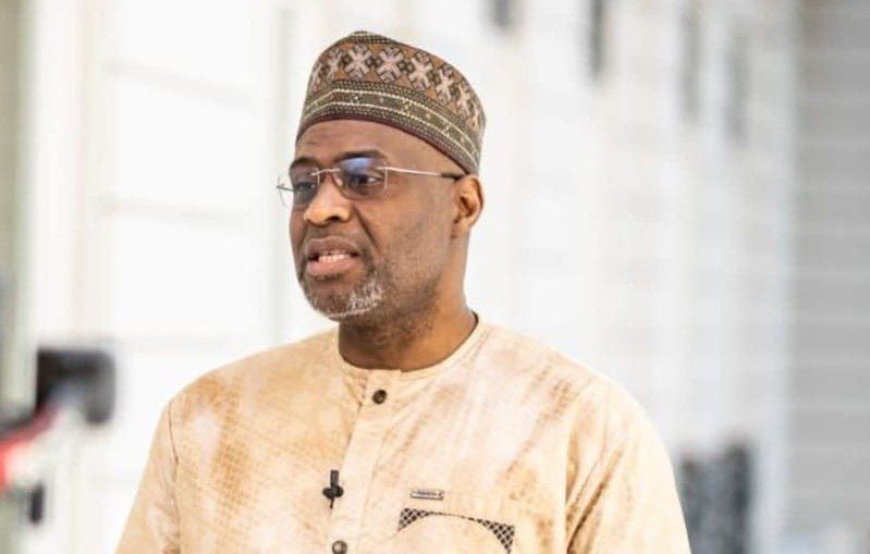Moussa Mara’s Arrest Deepens Mali’s Civil-Military Divide
Former Mali Prime Minister Moussa Mara has been arrested for supporting jailed critics of the military junta, intensifying the nation's democratic crisis and civil-military tensions.

In a sharp escalation of tensions between civilian political leaders and Mali’s military junta, former Prime Minister Moussa Mara has been placed under pretrial detention after publicly expressing solidarity with jailed critics of the ruling regime. The arrest marks a new chapter in Mali’s ongoing suppression of dissent and underscores the challenges facing democracy in the Sahel region.
From Social Media Support to Pretrial Detention
Moussa Mara, who served as Mali’s Prime Minister in 2014–2015, was detained after posting on X (formerly Twitter) that he had met with prisoners of conscience and urged for their release. In his post dated July 4, Mara declared:
“As long as the night lasts, the sun will obviously appear! We will fight by all means for this to happen as soon as possible!” AP News+10AP News+10AP News+10
Cybercrime prosecutors detained him on charges of undermining state authority, inciting public disorder, and spreading false information—offenses defined under Mali’s cybercrime laws. His lawyer confirmed that legal proceedings are set to begin on September 29, 2025 Devdiscourse+2AP News+2AP News+2.
Political Context: A Breakdown of Civil-Military Relations
Since orchestrating coups in 2020 and 2021, Gen. Assimi Goita and the military junta have consolidated control, delayed elections, and dismantled political opposition. In June 2025, a national political conference endorsed Goita’s continuation for five more years, despite prior commitments to restore civilian governance by March 2024 Devdiscourse+3AP News+3AP News+3.
Moussa Mara’s detention follows recent arrests of activists and opposition figures, including Alassane Abba and El Bachir Thiam, who were seized after criticizing the junta publicly Wikipedia+9AP News+9The Washington Post+9. Mara previously visited these figures in prison and demanded their release, drawing the ire of military authorities.
Legal and Human Rights Implications
Mara’s arrest comes under Mali’s Law No. 2019‑056 on cybercrime, which enables prosecution over social media posts. Critics argue that the law is being weaponized to suppress dissent. Aided by Mali’s judiciary and cybercrime unit, authorities have interpreted Mara’s public statements as acts likely to damage the state’s credibility and disrupt public order AP News+1Amnewsworld+1APAnews - Agence de Presse Africaine.
Human rights observers note that due process in Mali is often compromised. Arbitrary detentions and prolonged pretrial custody are common, particularly in political cases. With judiciary backlogs and limited access to legal representation, many detainees await trial for years Wikipedia.
International Backlash and Regional Significance
Reactions from international bodies have been swift. The African Union, ECOWAS, and U.N. human rights agencies have condemned the crackdown and urged rejigging of Mali’s election roadmap. Experts warn that the arrest signals Mali’s deeper drift from democratic norms.
One human rights researcher noted:
"Mali’s crackdown reflects a wider pattern—civil society, journalists, and political voices are being silenced as the junta entrench power." Devdiscourse
Public Response and Political Fallout
Within Mali, opinion is sharply divided. In urban centers like Bamako, supporters of Mara have expressed outrage and demanded legal access. Social media campaigns using hashtags like #JusticeForMara and #FreeMaliVoices have gained traction. In rural areas and military-aligned media, the narrative stresses national stability and frames dissent as political sabotage Amnewsworld.
Political parties that remain operational have largely issued muted statements, citing escalating risks to their remaining public voice after the junta dissolved all registered parties in May.
Who is Moussa Mara?
A trained engineer turned politician, Moussa Mara helmed Mali’s government briefly from April 2014 to January 2015. A young face of the pro-democracy movement, he brings insider credibility and a technocratic background to his political engagements. His post-PM decade included leadership roles, such as honorary president of the Yelema party and a vocal advocate for constitutional rule AP NewsAP News.
Supporting civil society and appearing at activists' prisons, Mara has positioned himself at the moral center of Mali’s resistance to military dominance.
What Lies Ahead
Legal experts expect Mara’s defense to challenge the charges as violation of free speech and political participation rights. His case may evolve into a symbolic trial, spotlighting Mali’s broader struggle over civil-military balance.
If convicted, penalties under cybercrime statutes can include imprisonment and fines. But many observers emphasize the case’s political gravity far outweighs its legal complexity.
For Mali’s junta, the detention serves as both a warning and a precedent: political dissent at any level may be met with state machinery. For democracy advocates, Mara’s arrest represents a critical moment to rally support for rights and free expression.
Conclusion: Mali at a Democratic Crossroads
The pretrial detention of Moussa Mara marks a turning point in Mali’s political trajectory. As a former prime minister now detained for advocating democratic rights, his case highlights the fragile state of dissent in a country under military rule.
With elections indefinitely postponed and opposition voices sidelined, Mali stands at a crossroads—one where democratic ideals clash with authoritarian repression. Mara’s fate will help determine which path the nation chooses.




















































